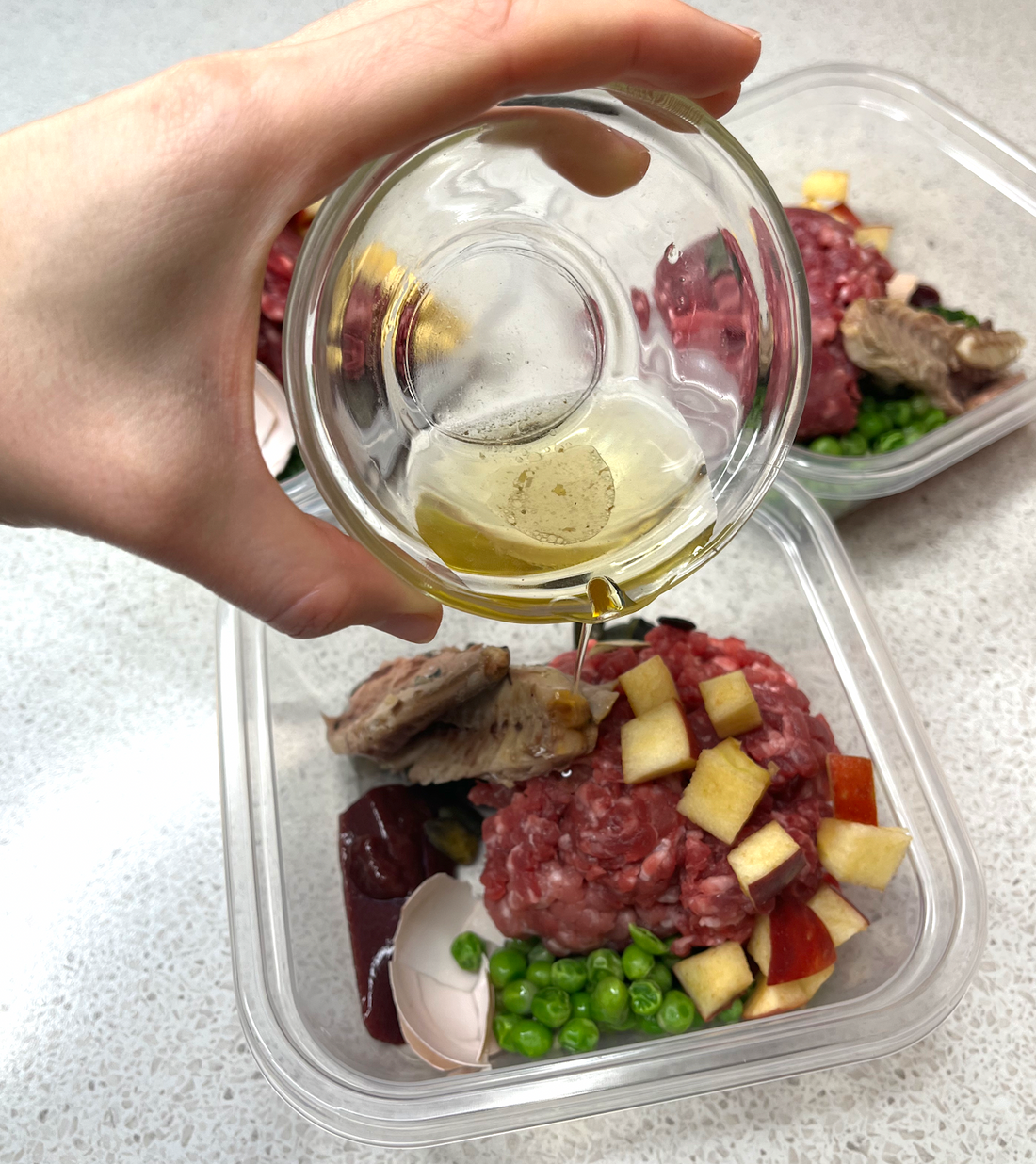
Why organ meat is important in a raw dog food diet
If you're looking to provide your furry friend with the best nutrition possible, you may have considered a raw dog food diet.
But did you know that organ meat is a crucial component of this type of diet?
Organ meat is rich in essential nutrients that can significantly contribute to your pet's overall health and wellness.
From digestive system support to immune function and vital organ nourishment, organ meat provides numerous benefits that your dog simply can't live without.
Key Takeaways:
- Organ meat is a vital component of a raw dog food diet.
- It provides essential nutrients for your pet's overall health and wellness.
- Organ meat supports digestive system function, boosts immune function, provides nourishment to vital organs, enhances energy levels, and adds variety to the diet.
- It's important to understand feeding guidelines and precautions to ensure your dog's safety.
- When incorporated into your dog's diet properly, organ meat can contribute to optimal canine wellness.

What is organ meat?
Organ meat refers to the internal organs of animals, including the heart, liver, kidneys, spleen, pancreas, and brain. These organs are commonly used in a raw dog food diet because they provide a rich source of nutrients that support your pet's health and well-being.
The nutritional composition of organ meat varies depending on the specific organ. However, overall, organ meat is rich in vitamins such as A, B, D, E, and K, as well as minerals like iron, zinc, and selenium. Additionally, organ meat contains high-quality protein and healthy fats, making it a valuable addition to any dog's diet.
Some of the most commonly used organ meats in raw dog food include:
| Organ Meat | Nutritional Benefits |
|---|---|
| Liver | Rich in vitamin A, iron, and copper |
| Heart | Excellent source of taurine and B vitamins |
| Kidney | Rich in vitamin A, iron, and zinc |
| Spleen | Good source of iron and vitamins B12 and C |
| Pancreas | Rich in digestive enzymes and healthy fats |
By including a variety of organ meat in your dog's raw food diet, you can ensure that they receive a well-rounded balance of key nutrients for optimal health.
Nutrient-rich powerhouse
Organ meat is an essential part of a raw dog food diet due to its nutrient-rich composition. Unlike muscle meat, which is rich in protein but lacks essential vitamins and minerals, organ meat provides a wide range of nutrients that support your pet's overall health.
| Nutrient Type | Benefits | Sources in Organ Meat |
|---|---|---|
| Vitamins A, D, E, and K | Supports vision, bone health, immunity, and blood clotting. | Liver, kidney, heart, and spleen. |
| B Vitamins | Supports energy metabolism, brain function, and cell health. | Liver, kidney, heart, and spleen. |
| Iron | Supports red blood cell function and prevents anemia. | Liver and kidney. |
| Copper | Supports bone health, immunity, and iron absorption. | Liver and kidney. |
| Zinc | Supports skin health, immunity, and wound healing. | Liver and kidney. |
Organ meat provides an excellent source of high-quality protein, making it an essential component of a raw dog food diet. It contains all the essential amino acids that dogs need for protein synthesis and muscle growth.
Including organ meat in your pet's diet ensures that they receive the vital nutrients they need for optimal wellness. The nutrient profile of organ meat makes it a superfood for dogs, providing the building blocks for overall health and well-being.
You can also purchase freeze dried beef hearts (an organ meat) here

Digestive System Support
Organ meat plays a vital role in supporting your dog's digestive system. The enzymes and natural probiotics found in organ meat promote healthy digestion, increasing the absorption of nutrients. The inclusion of organ meat in a raw dog food diet ensures your pet receives the essential digestive support required for optimal health.
In addition to aiding digestion, organ meat is also an excellent source of dietary fibre, which enhances bowel movement and helps prevent constipation. This fibre stimulates the growth of beneficial gut bacteria, resulting in a balanced and healthy gut.
It's important to note that the quality of the organ meat you feed your dog is crucial. Poor-quality meat can contain harmful toxins that can undermine your pet's digestive system, resulting in vomiting, diarrhea, and other digestive problems. Always use high-quality, fresh organ meat, ideally from trusted local sources or reputable brands.
Enzymes Found in Organ Meat
| Enzyme Name | Function |
|---|---|
| Amylase | Breaks down carbohydrates into simpler sugars |
| Lipase | Breaks down fats and fatty acids |
| Protease | Breaks down proteins into amino acids |
| Phosphatase | Aids in the absorption of calcium and other minerals |
Organ meat is an exceptional source of digestive enzymes, including amylase, lipase, and protease. These enzymes help break down carbohydrates, fats, and proteins, ensuring that your dog's digestive system can efficiently absorb the nutrients found in their food.
"Incorporating organ meat in your dog's diet is an excellent way to ensure their digestive system operates smoothly and efficiently while promoting optimal nutrient absorption."
Boosting Your Dog's Immune Function with Organ Meat in Their Raw Food Diet
Organ meat is a crucial component of a raw dog food diet that provides numerous health benefits, including strengthening your pet's immune system. The immune system plays a vital role in protecting your dog from diseases and infections, making it essential to maintain its optimal function.
Organ meat, such as liver and spleen, is a rich source of nutrients that support the immune system, including vitamins A, B6, and B12, iron, and zinc. These nutrients help in the production of white blood cells and antibodies, which fight off bacteria, viruses, and other harmful pathogens.
In addition to supporting the immune system's function, organ meat contains natural antioxidants that keep cells healthy, protecting against disease and aging. By incorporating organ meat in your dog's raw diet, you can ensure they receive the necessary nutrients to enhance their immune response and keep them healthy.
The Role of Organ Meat in Immune Function
In a raw dog food diet, organ meat provides the following benefits for boosting immune function:
| Nutrient | Function | Sources |
|---|---|---|
| Vitamin A | Supports immune cell growth and function | Liver, spleen |
| Vitamin B6 | Supports immune response and antibody production | Liver, kidney |
| Vitamin B12 | Essential for red blood cell production and immune response | Liver, spleen |
| Iron | Supports immune cell growth and function | Heart, kidney |
| Zinc | Supports immune cell function | Liver, spleen, kidney |
As with any dietary change, it's essential to follow recommended feeding guidelines and consult with your veterinarian to ensure your dog's nutritional requirements are being met. Incorporating organ meat into their raw food diet can be a game-changer, providing the essential nutrients that support their immune system, keeping them healthy and energetic.
Vital Organ Support
Organ meat is a crucial component of a raw dog food diet, providing essential support to your pet's vital organs. The organs responsible for detoxifying, filtering, and storing nutrients play a prominent role in your dog's overall health and wellness.
The heart, liver, and kidneys are among the vital organs that benefit from the inclusion of organ meat in their diet. These organs require specific nutrients to function correctly, making organ meat an important source of nourishment.
| Organ | Nutrient Benefits |
|---|---|
| Heart | Rich source of CoQ10, vitamin B12, and taurine. Helps maintain healthy cardiovascular system. |
| Liver | Excellent source of vitamins A, B, and K, iron, and copper. Promotes healthy vision, skin, and immunity. |
| Kidneys | Contains essential amino acids, vitamin A, and iron. Supports healthy urinary tract and renal function. |
Organ meat is also a natural source of taurine, an amino acid vital for several bodily functions, including proper heart and eye function. Taurine is abundant in organ meats such as the heart and liver and helps address taurine deficiency in dogs commonly fed commercial kibble.
Ensure that you include organ meat as part of your dog's raw food diet to provide the necessary nutrients to support their vital organs.
Enhanced Energy Levels
Feeding your dog organ meat can lead to significant improvements in their energy levels and overall vitality. Amino acids and B vitamins, found in abundance in organ meat, play an essential role in supporting your pet's energy metabolism. These nutrients aid in the production of energy, enabling your dog to maintain optimal health and activity levels.
Incorporating organ meat into your dog's diet provides concentrated protein, which helps build and repair muscle tissue that contributes to physical strength and endurance. Organ meat is also an excellent source of iron, which makes hemoglobin, the protein responsible for carrying oxygen to the cells in your dog's body.
Help your dog unlock their full energy potential by regularly including organ meat in their raw dog food diet.
Variety and Balance in the Diet
Adding organ meat to your dog's diet can provide essential vitamins and minerals, but it also adds variety and balance to their nutrition. Rotating different types of organ meat ensures that your pet receives a well-rounded diet, offering a range of nutrients that each organ provides.
Consider exploring different types of organ meat, such as liver, kidneys, and heart. These meats offer different nutritional value and a range of flavors that your pet will enjoy. It's important to ensure that the overall diet remains balanced and meets your pet's nutritional needs.
One way to create balance is to incorporate other raw proteins, such as muscle meats and bones, alongside the organ meat. This ensures your pet receives the necessary nutrients from different sources.
Remember to always follow properly created and balanced raw dog food recipes and meal plans - if you need help you can see our pet nutritionist created dog recipes here.
Feeding Guidelines and Precautions
Feeding your dog organ meat as part of a raw food diet requires careful consideration to ensure their safety and optimal nutrition. Here are some guidelines to follow:
- Organ meat should make up approximately 10% of your dog's diet.
- Rotate different types of organ meat to ensure a well-rounded diet. It is recommended to include liver, kidney, heart, and brain.
- Cut the organ meat into appropriate-sized portions for your dog's size and weight. Slicing them into small pieces can help your dog digest them better.
- Choose organ meat from trusted and reputable sources, preferably grass-fed or free-range.
- Wash your hands and surfaces thoroughly before and after handling organ meat to prevent contamination.
- Avoid feeding your dog too much organ meat, as excessive consumption can lead to an imbalance of certain nutrients.
- If your dog has a pre-existing medical condition or is on medication, consult with your veterinarian before introducing organ meat into their diet.
- Monitor your dog's reaction to organ meat and any other changes in their behaviour or health.
Incorporating organ meat into your dog's diet can provide numerous health benefits, but it is essential to approach it with caution and care. With the right feeding guidelines and precautions, your dog can enjoy the nutritious and delicious benefits of raw organ meat.
Conclusion
The benefits of including organ meat in a raw dog food diet cannot be overstated. Not only is it a nutrient-rich powerhouse, but it also aids in supporting the digestive system, boosting immune function, providing essential support to your dog's vital organs, and enhancing energy levels. By incorporating a variety of organ meats into your pet's nutrition, you can provide a well-rounded and balanced diet that promotes overall health and wellness.
It's important to keep in mind feeding guidelines and precautions to ensure your pet's safety and well-being. Always consult with your veterinarian before making any significant changes to your pet's diet. With the right guidance and care, your furry friend can enjoy the many benefits of organ meat and thrive on a wholesome and nutritious raw food diet.
You can also purchase freeze dried beef hearts (an organ meat) here
FAQ
Why is organ meat important in a raw dog food diet?
Organ meat is important in a raw dog food diet because it is a nutrient-rich powerhouse that provides essential vitamins, minerals, and proteins. It supports the digestive system, boosts immune function, nourishes vital organs, enhances energy levels, and adds variety and balance to the diet.
What is organ meat?
Organ meat refers to the internal organs of animals, such as the liver, heart, kidneys, and lungs. These organs are commonly used in raw dog food and provide crucial nutrients for your pet's health.
How does organ meat support the digestive system?
Organ meat contains enzymes and natural probiotics that aid in healthy digestion for dogs. These components help break down food and promote optimal nutrient absorption.
How does organ meat boost immune function?
The inclusion of organ meat in a raw dog food diet can boost immune function due to its rich nutrient profile. Organ meat provides essential vitamins and minerals that support a strong immune system in dogs.
How does organ meat provide vital organ support?
Organ meat contains nutrients that specifically benefit vital organs like the heart, liver, and kidneys. These nutrients nourish and support the optimal function of these organs in dogs.
How does organ meat enhance energy levels?
Feeding organ meat to dogs can enhance their energy levels and overall vitality. Organ meat is rich in amino acids and B vitamins, which support energy metabolism in pets.
Why is variety and balance important in the diet?
Including organ meat in your dog's diet adds variety and balance to their nutrition. Rotating different types of organ meat ensures that your pet receives a well-rounded and wholesome diet.
What are the feeding guidelines and precautions for organ meat?
When incorporating organ meat into your dog's raw food diet, it is important to consider appropriate portion sizes, potential risks, and precautions. Consult with a veterinarian or raw feeding expert for specific guidelines tailored to your pet.
Conclusion
In conclusion, organ meat is essential in a raw dog food diet for promoting optimal canine wellness. Its nutrient density, digestive system support, immune-boosting properties, vital organ nourishment, energy enhancement, and dietary variety all contribute to your dog's overall health. Embrace the benefits of organ meat and ensure your pet receives a well-rounded and wholesome nutrition



